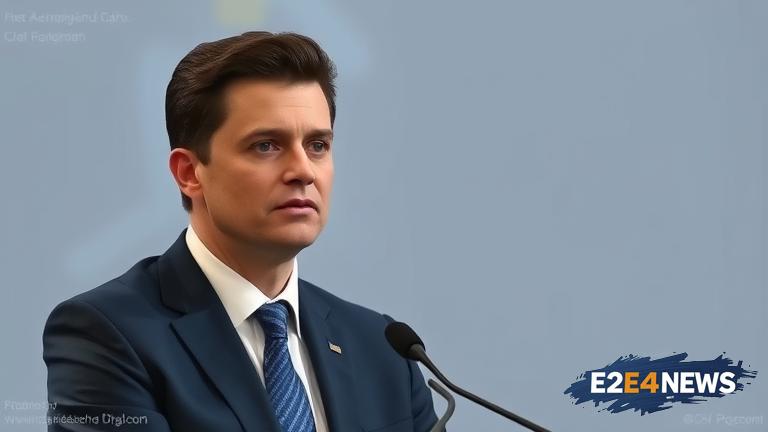Ukrainian President Volodymyr Zelensky, who was once hailed as a wartime hero for his leadership during the conflict with Russia, has found himself at the center of controversy over a new law that has sparked concerns about his authoritarian tendencies. The law, which was signed by Zelensky in late 2022, has been criticized for its potential to restrict freedom of speech and assembly, and has raised questions about the president’s commitment to democratic values. Critics argue that the law gives the government too much power to regulate and censor online content, and could be used to silence opposition voices and stifle dissent. The law has also been criticized for its vague language and lack of clear guidelines, which could lead to arbitrary enforcement and abuse of power. Despite the criticism, Zelensky’s government has defended the law, arguing that it is necessary to protect national security and prevent the spread of misinformation. However, many Ukrainians are skeptical of the government’s motives, and fear that the law could be used to consolidate power and undermine democratic institutions. The controversy surrounding the law has sparked widespread protests and demonstrations across Ukraine, with many calling for the law to be repealed. The international community has also weighed in on the issue, with many expressing concern about the potential implications of the law for human rights and democracy in Ukraine. The European Union and other Western countries have urged Zelensky’s government to reconsider the law and ensure that it is in line with international human rights standards. The controversy has also highlighted the challenges facing Ukraine as it seeks to balance its need for national security with its commitment to democratic values and human rights. Ukraine has been fighting a war with Russian-backed separatists in the eastern part of the country since 2014, and the government has argued that the law is necessary to prevent the spread of Russian propaganda and protect national security. However, many Ukrainians are concerned that the law could be used to restrict freedom of speech and assembly, and undermine the country’s democratic institutions. The law has also sparked concerns about the potential for corruption and abuse of power, and has highlighted the need for greater transparency and accountability in government. As the controversy continues to unfold, it remains to be seen how Zelensky’s government will respond to the criticism and concerns raised by the law. The international community will be watching closely to see how the situation develops, and whether Ukraine will be able to find a balance between national security and democratic values. The law has also raised questions about the role of the media in Ukrainian society, and the need for a free and independent press to hold those in power accountable. The controversy has also highlighted the importance of civil society and the need for Ukrainians to be able to express themselves freely and assemble peacefully. Overall, the controversy surrounding the law has sparked a national debate about the future of democracy and human rights in Ukraine, and has raised important questions about the balance between national security and individual freedoms.
